
Galileo di Vincenzo Bonaiuti de' Galilei was born in Pisa, then in the Duchy of Florence, in 1564. Commonly known as Galileo, he is credited with being one of the greatest scientific minds of the 16th and 17th centuries and is sometimes referred to as the 'father of modern science'. However, during Galileo's lifetime he would not have been referred to as a scientist. He was a polymath: a natural philosopher, mathematician and astronomer. Attending the University of Padua, initially to study medicine but later mathematics, Galileo honed his scientific knowledge before beginning to lecture and theorise for himself. In astronomy, he made advances that redefined the way we've understood the universe ever since. Although it is a common misconception that Galileo invented the telescope (it was actually invented in the Netherlands in 1608), he did utilise the new equipment to discover the four moons of Jupiter, the phases of Venus and that the Moon was covered in craters and mountains. Yet it wasn't any of these groundbreaking findings that he would have to defend when he came up against one of the most powerful institutions in the Italian states.
Founded in the 12th century, the Inquisition was a collection of Catholic organisations across Europe that operated with the aim of rooting out heresy and heretics across the continent.
The most infamous incarnation of the Inquisition was established in Spain in the 15th century and was known for its extreme and brutal methods. In the papal state of Rome, however, the Roman Inquisition saw a renewal in 1542, largely in response to the Counter-Reformation that was sweeping across Europe. In comparison to the Spanish Inquisition, the Roman branch was much more moderate in its pursuit of heretics, but this did not diminish its power or the fear it inspired.
This story is from the Issue 132 edition of All About History UK.
Start your 7-day Magzter GOLD free trial to access thousands of curated premium stories, and 9,000+ magazines and newspapers.
Already a subscriber ? Sign In
This story is from the Issue 132 edition of All About History UK.
Start your 7-day Magzter GOLD free trial to access thousands of curated premium stories, and 9,000+ magazines and newspapers.
Already a subscriber? Sign In
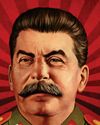
STALIN HAD CONTINUED WEST AFTER BERLIN?
Having used the Allies for his own ends, the Soviet dictator plots to overthrow the rest of Europe
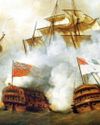
THE GLORIOUS FIRST OF JUNE
ATLANTIC OCEAN, 400 NAUTICAL MILES WEST OF USHANT 28 MAY - 1 JUNE 1794

LIFE AS AS A GODDESS
Jasmine Elmer uncovers the complexity and darker sides of ancient deities and delivers history with soul
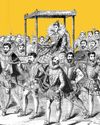
TUDOR FASHION TIPS
From farthingales and ruffs to codpieces, ten ways to achieve the styles of the Tudor court

THE FIRST AMERICANS
Discover indigenous life before the colonists landed
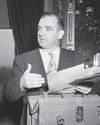
THE LAVENDER SCARE
How a national fear of communism led to the American government outing and firing thousands of gay and lesbian workers

STARS BEHIND THE BARS
Ten iconic celebrity mugshots and the stories behind them
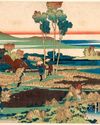
The Making of JAPAN
The rise of imperial power and a flourishing of the arts and culture in the Land of the Rising Sun can be traced back to the Asuka period

SIEGE OF TOULON
TOULON, FRENCH REPUBLIC SEPTEMBER-DECEMBER 1793

REDISCOVERING THE FORGOTTEN LIVES OF QUEER MEN
We speak to the editor of a groundbreaking new collection that uncovers what life was like for gay men when homosexuality was illegal in Britain